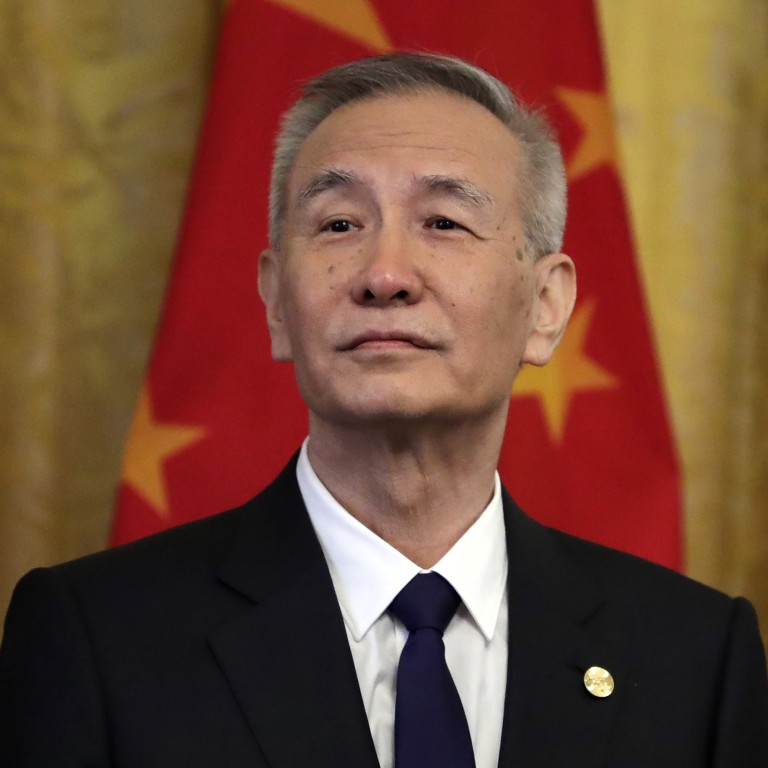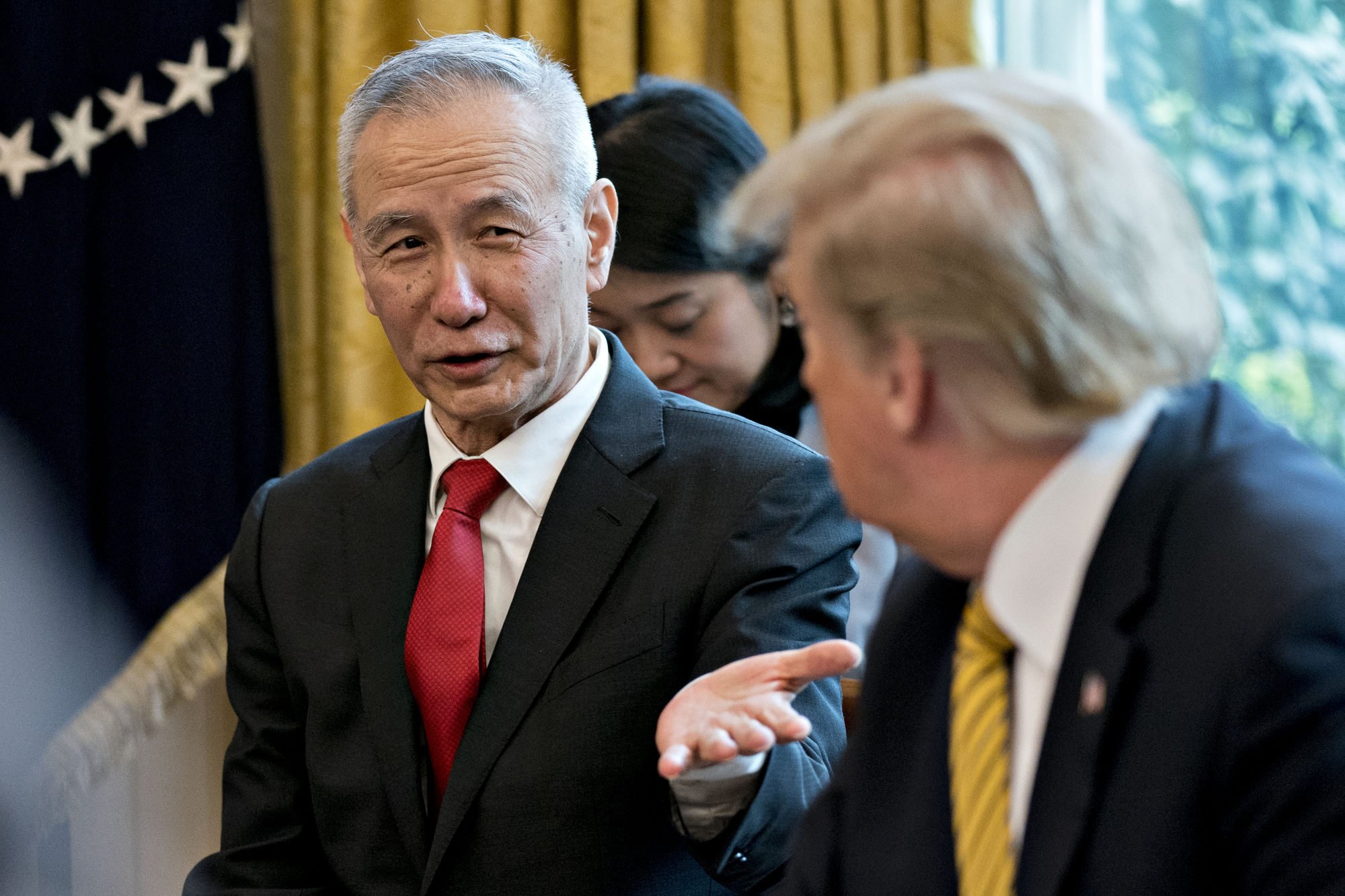
Exclusive | China’s former economic tsar Liu He still has a big seat at the table, quietly meets with Western delegations: sources
- Liu He, 71, is keeping it low-key in public, but President Xi Jinping wants his former right-hand man for economic affairs to stay in a position of influence
- Revelation shows how Xi has skirted traditions and customs by keeping a retired government official around as China navigates unfamiliar economic waters
A trusted aide to President Xi Jinping – retired vice-premier Liu He – has retained his position as office director for a key economic policymaking body headed by Xi, sources tell the Post.
And despite Liu’s absence from the public limelight, the 71-year-old remains the person to meet for high-ranking foreign delegations visiting Beijing. US Treasury Secretary Janet Yellen, US Commerce Secretary Gina Raimondo and some European leaders are all said to have sought out meetings with him during their trips to China – meetings that Beijing did not publicise.

Although a new crop of senior officials has been put in charge of China’s economy, sources say there has been no sign that Liu intends to embrace full retirement.
Having been at the head of the most important economic and financial office during Xi’s second term, Liu has relinquished all government positions and stepped down from the powerful Politburo of the Communist Party. At 71, he is well past the unwritten retirement age for top party officials.
But unlike other retired government officials, Liu is said to have retained his previous oversight of the Office of the Central Financial and Economic Affairs Commission.
The commission held its second meeting of the year on July 20 to discuss the protection of arable land and other agricultural-related issues, according to a statement from Xinhua. It is reported that the Central Rural Work Leading Group – another party organ responsible for rural and agricultural policies – has been incorporated into this commission, making it more powerful.
Restructure puts China’s US$58 trillion in financial assets firmly in party’s purview
Sources said Liu also sat at other relevant economic and financial meetings despite being no longer a vice-premier nor Politburo member. Beijing seldom publicises the composition and daily operations of party organs, which often hold the real decision-making power in Chinese politics.
State media’s last coverage of Liu dates back to March, around the time of China’s parliamentary sessions, when Liu and other senior officials of retirement age officially stepped down from their government positions.
The fact that Liu has retained his influence in some form is welcomed by certain contingents inside and outside the country. Many see him as a dependable and experienced old hand who knows how to handle crises. And foreign businesses see Liu as a pro-market reformist with a good understanding of the global economy.
Allowing Liu to continue serving in such roles also shows how Xi is less bound by party traditions and customs.
However, the arrangement raises questions about how senior economic officials divide their work, particularly when China faces increasingly complex and difficult challenges to continue growing its economy. China observers are looking to when the party might hold its third plenum – when leadership historically lays out policy direction and sets priorities.
As a prominent economist, Liu helped draft a landmark reform document in 2013 that detailed dozens of tasks for a market-oriented restructuring of China’s economy. The calls for economic reforms to break growth bottlenecks and find a sustainable development path have now surfaced ahead of the plenum due later this year.
Vice-Premier He Lifeng shown to be China’s point man on economic ties
The Central Finance Commission was set up under the ruling party to oversee the country’s financial matters, as a part of a sweeping reshuffle of the government and the party institutions in March. The commission, which is expected to be led by Xi, has not yet convened its first meeting, but the office that He Lifeng oversees began its daily operations last month.
It is not clear how the responsibilities are divided between the commissions under Liu He and He Lifeng.
Han Wenxiu, 60, is the executive deputy director of the Central Financial and Economic Affairs Commission office and is concurrently director of the Office of the Central Rural Work Leading Group, according to a state media report earlier this month.
Public records showed that finance vice-minister Liao Min, 54, remains a deputy director of the economic commission’s office, while Zhu Weidong, a 55-year-old agricultural official, was promoted to deputy director over the summer.

